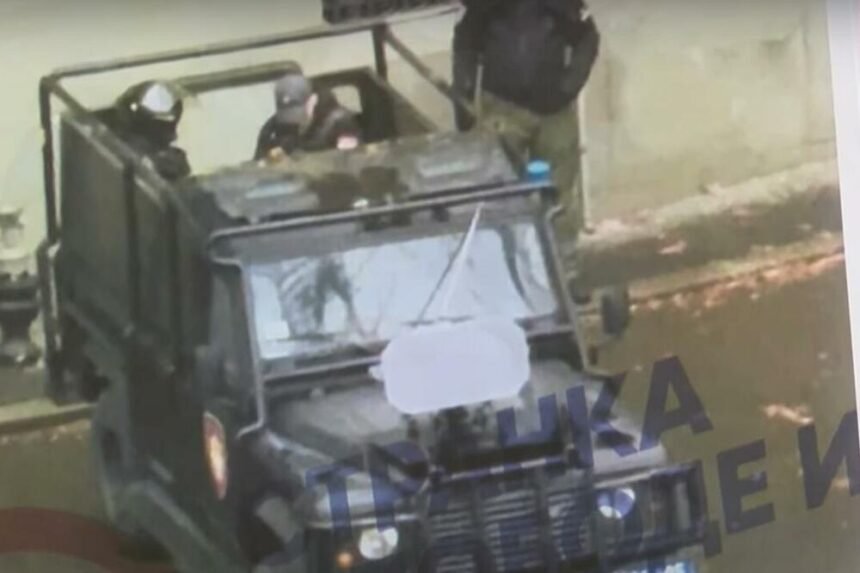The Serbian government has announced that experts from the U.S. Federal Bureau of Investigation (FBI) and Russia’s Federal Security Service (FSB) will take part in an investigation into allegations that sonic weapons were used during the March 15 protest in Belgrade. The move has sparked debate, with critics calling it a political maneuver rather than a genuine attempt at transparency.
Government’s Stance: Seeking International Legitimacy
Officials in Belgrade claim that invitations have already been sent to both intelligence agencies, with their arrival expected in the coming days. According to the government, the goal is to conduct a transparent investigation and confirm that no such weapons were used against protesters.
However, opposition figures argue that the investigation should be conducted by neutral international organizations such as the United Nations (UN) and the Organization for Security and Co-operation in Europe (OSCE). The government has stated it has no objections to their participation.
Critics: A Delaying Tactic to Control the Narrative
Military analyst Aleksandar Radić sees the government’s move as an attempt to buy time and manage the crisis.
“The March 15 incident seriously undermines public trust in Serbian authorities. Something happened that cannot be ignored, and now they need an exit strategy. Bringing in foreign agencies is unnecessary—this is a domestic issue that must be resolved within Serbia,” Radić told DW.
Political analyst Dragomir Anđelković echoed this sentiment, arguing that the invitation to the FBI and FSB is a clear admission that Serbian institutions have collapsed.
“This is entirely Vučić’s fault. It’s alarming when citizens no longer trust the police, judiciary, or even the Church. Now, he’s trying to buy credibility by involving foreign agencies that have a reputation—regardless of what we think of them,” Anđelković stated.
Doubt Over Foreign Agencies’ Role
So far, there has been no confirmation from the FBI or FSB regarding their participation. Serbian authorities insist they are coming, but these claims remain unverified.
Radić questions whether foreign agencies can provide any meaningful conclusions:
“It’s absurd for a foreign security agency to conduct an investigation in Serbia. And even if they do, will they reveal anything? The government initially denied possessing sonic devices, yet public pressure forced them to admit otherwise. That raises further doubts—how do we know they don’t have Russian or Chinese models as well?”
FSB’s Objectivity in Question
An additional concern is the potential bias of the FSB. Serbian Deputy Prime Minister Aleksandar Vulin has publicly thanked Russian security services for their assistance in combating so-called “color revolutions” in Serbia.
Anđelković suggests that this could lead to a politically convenient outcome:
“Vučić might find it easier to strike a deal with the Russians. But let’s not forget that even the FBI, under a Trump presidency, might have its own interests in Serbia. This isn’t about transparency—it’s about political maneuvering.”
What Can Actually Be Investigated?
Unlike conventional weapons, sonic devices leave no physical evidence, making their alleged use difficult to prove. The government may be exploiting this uncertainty to prolong the debate while maintaining control over the narrative.
Radić notes that the evidence available—videos and witness testimonies—should be sufficient for an internal investigation. The controversy over the use of state surveillance cameras with Chinese facial recognition software adds another layer of suspicion.
“There are interested parties in this case, and any conclusions could be driven by political agendas rather than facts,” he warned.
Parliamentary Groups and Uncontrolled Forces
Another unresolved issue is the presence of paramilitary groups at the March 15 protest. Radić warns that such organizations pose a major security risk.
“If the government claims it didn’t use sonic weapons, then who did? Paramilitary groups were clearly visible at the protest, wearing organized insignias. We’ve seen similar cases before, such as the Banjska incident, where the state tolerated such groups. History shows that when a government allows paramilitary forces to operate, they eventually turn against their own citizens,” Radić concluded.
As Serbia awaits an official response from the FBI and FSB, the controversy surrounding the March 15 protest continues to fuel political divisions. Whether this investigation will lead to real transparency or simply serve as another political tool remains to be seen.







